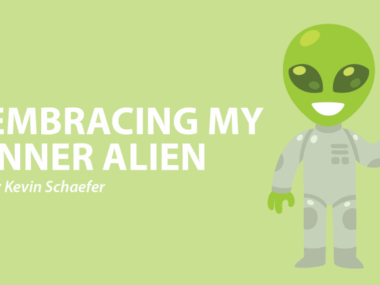Caregivers: The Good, the Bad and the Crazy
Written by |


Last fall, in a creative writing course, I wrote a fictional letter that was mostly a satirical piece about my experiences with caregivers. I wrote it from the perspective of a father of a disabled son, who was complaining to the care-giving agency they were using. Aside from one line about a certified nurse assistant (CNA) trying to inflict his conspiracy theories about Justin Bieber and aliens upon the son (which probably has happened with someone else), most of the examples I used in the piece about encounters with bad caregivers were based on my own experiences.
These included caregivers not showing up on time (or at all), one who repeatedly fell asleep on the job and snored so loud that I couldn’t sleep, and one who would vacuum my room in the middle of the night even after I told her not to do so. Those are all real situations I’ve dealt with, and I know I’ve been lucky. I have heard horror stories about CNAs who have made their clients feel afraid and uncomfortable; or worse, been abusive.
When my parents and I began to have serious conversations about me acquiring at-home caregivers three-and-a-half years ago, we didn’t know what to expect or where to start. For more than 20 years my parents were my only caregivers, doing everything from bathing and dressing me, to helping me with meals. Yet, at a point it got to be too much for all of us, and we knew we needed whatever help we could get.
After doing some research and talking about it with my doctors, we found a social work agency called Woody’s Mom, which opened many doors for us. They helped me get registered with the CAP/C program (Community Alternatives Program for Children), a government-sanctioned organization, and from there I was able to start looking for caregivers. The first step in this process was interviewing dozens of CNAs from various agencies, and trying to narrow it down to a couple I really liked.
Now, I’m not a shy person by any means, but this was nonetheless a pretty nerve-racking experience. No matter how nice the people I interviewed were, the one I hired would be responsible for transferring, bathing and dressing me — things that only my parents and a select few family friends had done previously. Beyond having to be transferred from my bed to my chair in a very specific and delicate manner, I wasn’t going to let just anyone be in charge of wiping my butt.
I interviewed several I really liked, and a couple who I knew right away would not be right for the job. It also was during this time that I met Randy, whom I’ve written about in previous columns. We hit it off instantly and I knew I wanted to hire him, but little did I know then he would still be working with me today, almost three years later.
And, while I did have some difficult CNAs, such as Sergeant Snores-a-Lot and the vacuum lady who also wouldn’t shut up, I’ve had some great ones as well. Along with Randy, I also became close friends with my caregiver Ruel. The three of us all share an equally irreverent and offensive sense of humor, and Ruel is also into sci-fi and comics. Though he eventually left to join the army as a combat medic, we still keep in touch. Likewise, Ruel’s replacement, Charles, also was one of the best caregivers I’ve had. He’s now in pharmacy school in Massachusetts, but we message each other on Facebook every now and then.
Today, it’s just Randy and me, along with my parents. Since Charles left it has been difficult to find a replacement, and I also only have so many hours I can use. Though we’ve dealt with obstacles like this and other bureaucratic issues, I am amazed at how much my life has changed for the better since starting this whole endeavor. I do imagine the possibility, and not the fantasy, of one day living away from home. But until then I’m quite content with the independence I have.
And, hey, at least I don’t have to listen to a vacuum machine go off in the middle of the night anymore.
***
Note: SMA News Today is strictly a news and information website about the disease. It does not provide medical advice, diagnosis, or treatment. This content is not intended to be a substitute for professional medical advice, diagnosis, or treatment. Always seek the advice of your physician or other qualified health provider with any questions you may have regarding a medical condition. Never disregard professional medical advice or delay in seeking it because of something you have read on this website. The opinions expressed in this column are not those of SMA News Today, or its parent company, Bionews Services, and are intended to spark discussion about issues pertaining to spinal muscular atrophy.







Leave a comment
Fill in the required fields to post. Your email address will not be published.